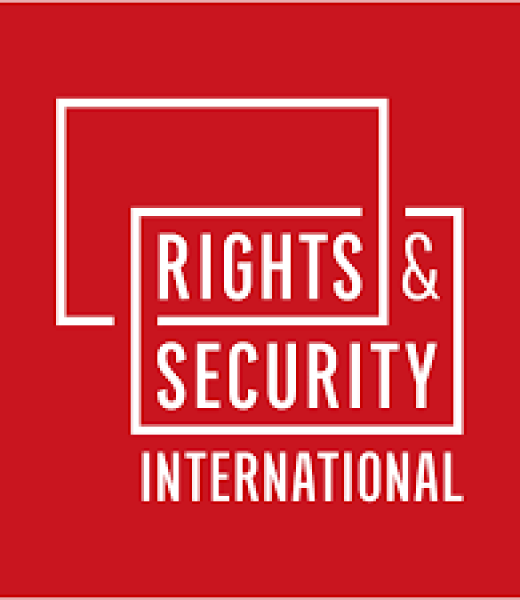1990
Birth
The Britain & Ireland Human Rights Project is formed, the first incarnation of what is now Rights & Security International.
Our mission statement reads: “We are an independent non-governmental organisation that monitors the human rights dimension of the conflict in Northern Ireland. Our services are available free of charge to anyone whose human rights have been affected by the conflict, regardless of religious, political or community affiliations, and we take no position on the eventual constitutional outcome of the peace process.”
John Stevens—then Deputy Chief Constable of Cambridgeshire—publishes a summary of his first report into collusion between the UK Government and loyalist paramilitaries in Northern Ireland. He finds that, although collusion existed, it was “neither widespread nor institutionalised.” Nevertheless, a number of police officers are prosecuted for passing information to loyalists.
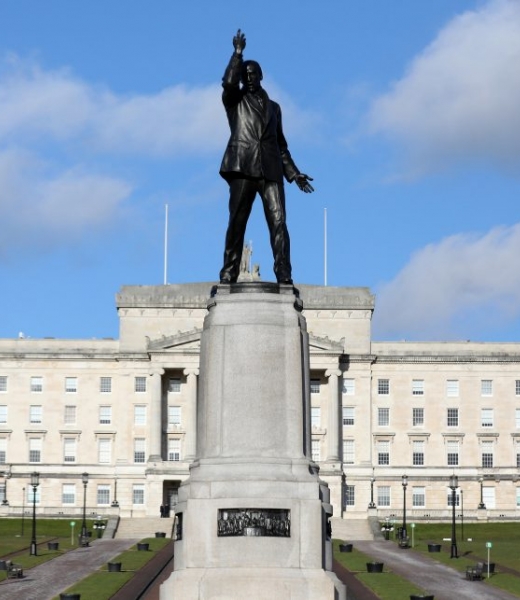
1991
The Britain & Ireland Human Rights Project begins investigating Bloody Sunday, a mass shooting in 1972 where British soldier shot 26 unarmed civilians during a protest march against internment without trial. We also start documenting the systemic intimidation and eventual murders of defence lawyers in Northern Ireland including Patrick Finucane.
A submission is made to the Cullyhanna Inquiry into the shootings of Fergal and Michael Caraher by the British military during a 1990 ambush.
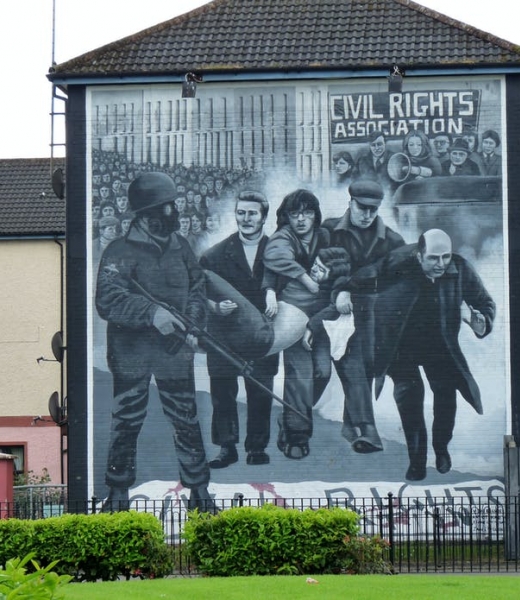
1992
British Irish Rights Watch
Our organisation is approached by the relatives of those who died on Bloody Sunday 1972, asking for help in calling for a second inquiry. The first inquiry, which took place in 1973, was largely judged to be a whitewash, which exonerated the soldiers and blamed the victims. We go on to play a key role in securing a second inquiry which culminates in an apology on behalf of the British Government.
On the basis of the systemic issues we were documenting and addressing in Northern Ireland, we organise the first of many seminars for lawyers in London and Belfast: The Right of Silence (Belfast), Enforcing European Remedies (Belfast), Irish Aspects of the Royal Commission on Criminal Justice (London), Access to Legal Advice (Belfast), Coroners' Inquests (Belfast), Recent Developments in Inquests in England and Northern Ireland (London), Interrogation, Confessions and Corroboration (Belfast), Using the United Nations and the CSCE Process (London).
We provide evidence to the United States Lawyers Committee for Human Rights as part of its investigations into the murder of Patrick Finucane, intimidation of defence lawyers, and collusion between the UK Government and loyalist paramilitaries.
We make two submissions to the United Nations Special Rapporteur on the Independence of Judges and Lawyers on the intimidation of defence lawyers in Northern Ireland. The submission of such reports would become an annual event and led to the first visit of a UN Special Rapporteur to the United Kingdom in 1997.
We publish Inquests and Disputed Deaths in Northern Ireland, a revised version of the Committee on the Administration of Justice’s (CAJ) guide.
We make major submission to the UK’s Royal Commission on Criminal Justice drawing from our experience working in Northern Ireland.
John Stevens is recalled to conduct a second report into UK Government collusion with paramilitaries after the airing of a BBC documentary, “The Dirty War.” The documentary claims that Brian Nelson, the intelligence chief of the Ulster Defence Association who was working undercover for the British army, had been involved in a number of murders—including that of Patrick Finucane.
We organize, alongside Liberty and the Committee on the Administration of Justice (CAJ), a Northern Ireland Human Rights Assembly in London. The Assembly is the first of its kind, and is attended by over 250 Protestants and Catholics who give evidence about serious human rights violations arising out of the conflict in Northern Ireland. The conference shows the need for a permanent organisation that focuses on the human rights dimension of the conflict. We are re-constituted as British Irish Rights Watch (BIRW) and apply for charitable status.
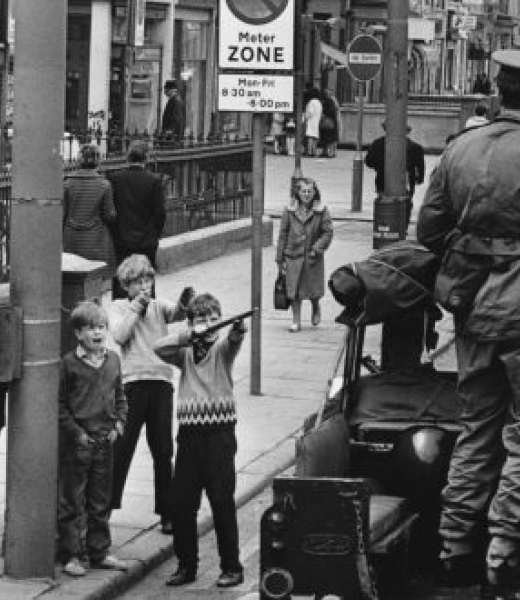
1993
A substantial and influential report of the Northern Ireland Human Rights Assembly, Broken Covenants: Violations of International Law in Northern Ireland, is published. It is written by seven leading international human rights experts who listened to the evidence presented at the Assembly and plays a critical role in giving visibility to the human rights abuses that are happening in Northern Ireland within the wider UK as well as internationally.
We provide evidence to two hearings, one organized by Amnesty International and the other by Liberty, on the human rights situation in Northern Ireland, including the use of corroboration and confession evidence, and the right to remain silent when accused of a crime.
We make our annual submissions to the United Nations Special Rapporteur on the Independence of Judges and Lawyers on the intimidation of defence lawyers in Northern Ireland.
We make a submission to the United Nations Special Rapporteur on the Right to a Fair Trial concerning alleged miscarriages of justice in Northern Ireland.
We make a submission to the United Nations Special Rapporteur on Extra-Judicial, Summary and Arbitrary Executions on the murder of Patrick Finucane and the deaths on Bloody Sunday.
We make a submission to the second inquiry by John Stevens into UK Government collusion with violent paramilitaries in Northern Ireland.
We identify, as a critical issue, the narrative that is being deployed by the UK Government, and picked up by the mainstream media, about the conflict in Northern Ireland, and we therefore organise a conference in London, Conflicting Reports, to address reporting of the conflict in Northern Ireland.
We host seminars in London and Dublin for lawyers on the following issues: Secrecy, Disclosure and National Security (Belfast), and Policing the Police (Dublin) to address the systemic issues we see emerging in the context of access to justice and policing in the conflict in Northern Ireland.
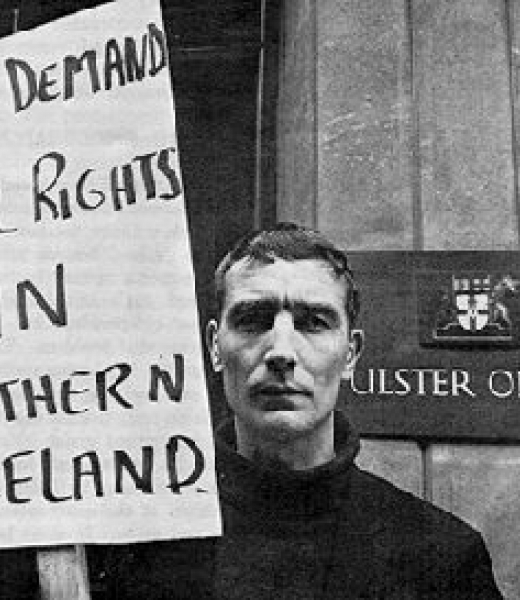
1994
We deliver a report to the British Prime Minister about Bloody Sunday protest calling for a new public inquiry. This is crucial in bringing about the second public inquiry.
We deliver a submission to the Irish Government’s Forum for Peace and Reconciliation on the role of human rights in the Northern Ireland peace process.
We hold seminars on Human Rights in Northern Ireland since the Ceasefires (London and Belfast).
We make our annual submissions to the United Nations Special Rapporteur on the Independence of Judges and Lawyers on the intimidation of defence lawyers in Northern Ireland.
In August 1994, with the announcement of a ceasefire and as a prospective peace process draws closer, we broaden our organisational scope to include transitional justice.
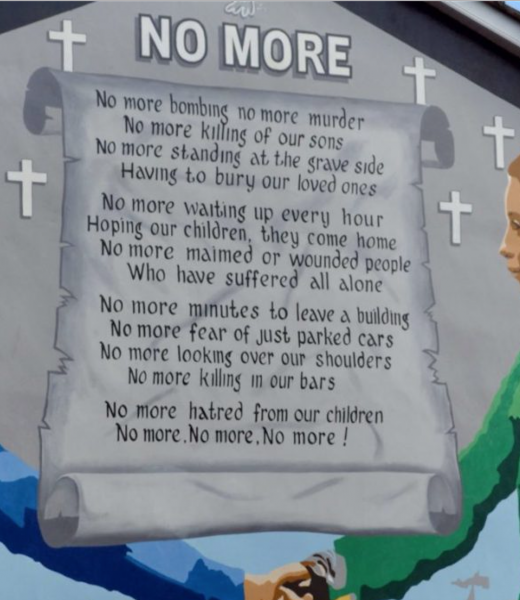
1995
John Stevens’ second report into collusion is delivered to the Director of Public Prosecutions. It does not result in any prosecutions and not even a summary is made public.
We publish The Role of Human Rights in the Northern Ireland Peace Process.
We make a submission to the UN Human Rights Committee and the Committee Against Torture on conditions in detention for those held under emergency laws in Northern Ireland.
We make a submission to the United Nations Committee Against Torture on the case of David Adams, an activist who alleged mistreatment by the hands of RUC officers at his arrest and during his time in Castlereagh detention centre where he was said to have been subjected to repeated beatings, resulting in a broken rib, a punctured lung, and severe lacerations to the back of his head. While no officer was disciplined, the Northern Irish High Court would award him £30,000 in 1998.
The Irish and British Governments agree to establish an independent international commission (The Mitchell Commission) to oversee the decommissioning of paramilitary weapons in Northern Ireland as part of peace process. We make a submission to the Mitchell Commission highlighting the human rights issues at play and the suitable and acceptable methods for full and verifiable decommissioning.
We make a submission to the United Nations' Special Rapporteur on Extra-Judicial, Summary and Arbitrary Executions on the death of Gervaise McKerr, who was killed at vehicle checkpoint by undercover members of the Royal Ulster Constabulary.
We, alongside, the Irish Commission for Prisoners Overseas make a submission to the United Nations Committee against Torture on the situation of Irish prisoners in England.
We make our annual submissions to the United Nations Special Rapporteur on the Independence of Judges and Lawyers on the intimidation of defence lawyers in Northern Ireland.
We provide further evidence to the United States Lawyers Committee for Human Rights as part of its investigations into the murder of Patrick Finucane, intimidation of defence lawyers, and collusion.
We make a submission to the United Nations Human Rights Committee on the UK’s observance of the International Covenant on Civil and Political Rights relation to the conflict in Northern Ireland.
We host seminars on: Putting Wrongs to Right: Miscarriages of Justice (Belfast), Human Rights and the Peace Process (Belfast) and The Relevance of Human Rights to the Northern Ireland Peace Process (Dublin).
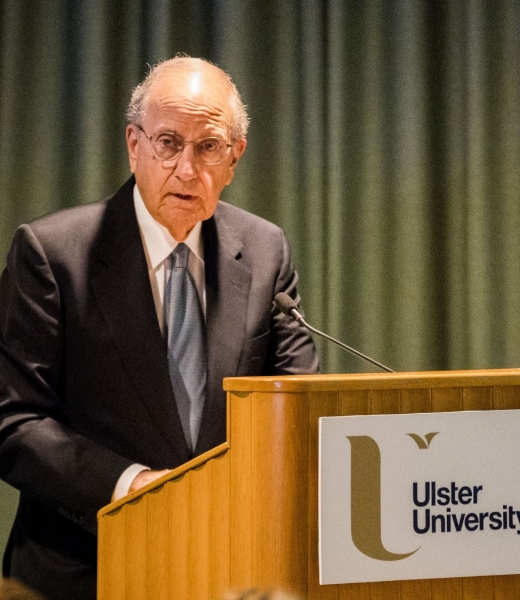
1996
We make a submission to the United Nations Special Rapporteur on Extra-Judicial, Summary and Arbitrary Executions regarding the deaths of Mairéad Farrell, Daniel McCann and Seán Savage who the British military shot dead in Gibraltar.
Later that year, we make a third-party intervention into the case concerning the deaths of the abovementioned persons by British military soldiers in Gilbratar in McCann and Others v UK, Application No 18984/91 (Grand Chamber) [1995]. The Court found a violation of Article 2(2) – of the right to life - in the lethal shooting of the suspects. This is a seminal case in terms of developing and defining the right to life and the permissible parameters for the state’s use of lethal force under the European Court of Human Rights, as well as the duty of the state to investigate the use of force in such circumstances .
We, alongside the Committee on the Administration of Justice and Liberty, also make a third-party intervention in the case of John Murray v United Kingdom, Application No. 18731/91 (Grand Chamber) [1996] at the European Court of Human Rights which ultimately establishes that a suspect has the right to remain silent until they have received legal advice.
We make submissions to the Inquiry into Legislation Against Terrorism, the Independent Review of Parades and Marches, and a joint submission with the Relatives for Justice to the Truth and Reconciliation Commission of South Africa.
We make our annual submissions to the United Nations Special Rapporteur on the Independence of Judges and Lawyers on the intimidation of defence lawyers in Northern Ireland.
We host a legal seminar in London entitled: A Hostage to Fortune? Do we need permanent counter-terrorism laws?
We publish Human Rights, Human Wrongs, A guide to the Human Rights Machinery of the United Nations. The first practical guide of its kind, it is later revised, taken over by the Northern Ireland Human Rights Commission, and translated into many languages.
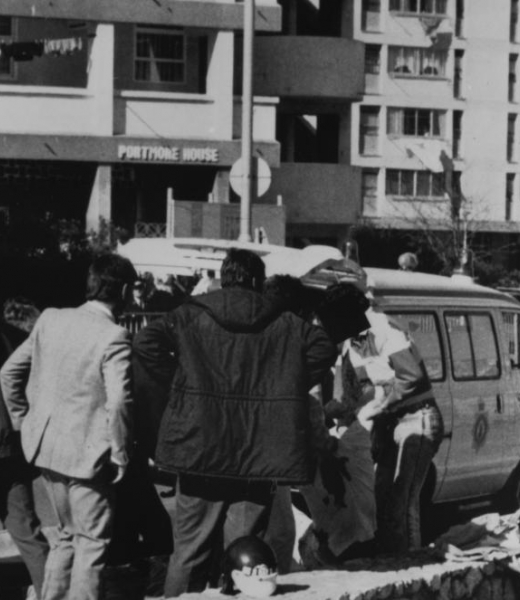
1997
We make our annual submissions to the United Nations Special Rapporteur on the Independence of Judges and Lawyers on the intimidation of defence lawyers in Northern Ireland.
After the submission of a series of seven reports to the United Nations on the intimidation of, and violence against, defence lawyers in Northern Ireland, our efforts are recognised when the UN Special Rapporteur on the Independence of Judges and Lawyers makes an official visit to the United Kingdom. This is the first ever official mission to the UK by an officer of the UN and he cites British Irish Rights Watch extensively in his report.
We make a submission to the United Nations' Special Rapporteur on Extra-Judicial, Summary and Arbitrary Executions on the shooting of Diarmuid O’Neill an unarmed man who was shot and killed in a hotel by an armed police unit in 1996 on suspicion of involvement in the IRA, and the death of Robert Hamill an Irish Catholic civilian who was beaten to death by a loyalist mob.
We make joint submissions to the United Nations Human Rights Committee and the Committee Against Torture concerning allegations of ill treatment by Gardaí (Irish state police force). The Gardaí arrested many in the months following the killing of Garda Jerry McCabe by the provisional IRA during an attempted robbery of a post office van. Only a small number of those arrested were charged and the accusers appeared in court with clearly visible injuries.
We make a submission to the Independent Inquiry into the murder of Patrick Shanaghan who was ambushed by Unionist paramilitaries in 1991 after years of state harassment.
We make a submission to PACE University, USA on the killings of nine people, and the wounding of another, at Loughgall, County Armagh, Northern Ireland on 8 May 1987 following an attack by Provisional IRA on an RUC base in the village. A civilian was killed and another wounded after mistakenly driving into the ambush zone and being mistaken for IRA attackers.
We host two seminars in Belfast on Inquests and Contentious Deaths and Taking a Case to the Criminal Case Review Commission.
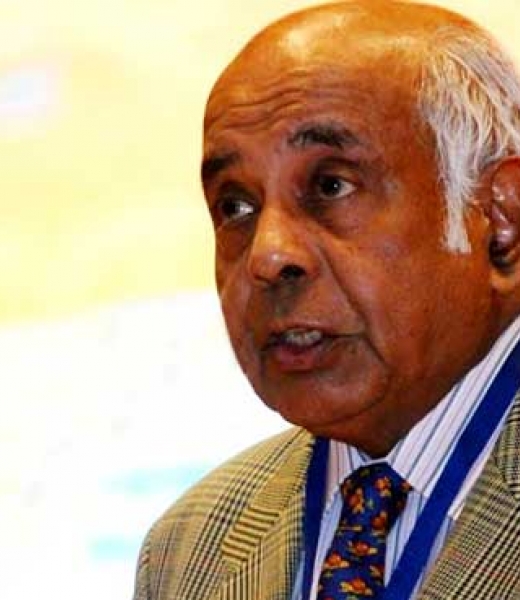
1998
The Good Friday Agreement
On 10 April 1998, the Good Friday Agreement is signed between the UK and Ireland. This international agreement helps to put an end to the conflict and provides a road map for peace in Northern Ireland . It establishes a new devolved government in Northern Ireland where unionists and nationalists share power and addresses justice and policing, cross-border cooperation, as well as committing all parties to the decommissioning of weapons. As part of the compromise, many paramilitary prisoners were given amnesties.
A second Bloody Sunday Inquiry (to be led by Lord Saville of Newdigate) is announced. This is a huge victory for the families and is in no small part to our advocacy, alongside the families, calling for this second inquiry. We send observers to the Inquiry and produce weekly reports on proceedings. We make a submission to the Bloody Sunday Inquiry Concerning Immunity & Anonymity.
The UN Special Rapporteur on the Independence of Judges and Lawyers publishes his report on his visit to the UK relying heavily on BIRW’s work, and citing us extensively in this report. He found that “harassment and intimidation” of lawyers was “consistent and systematic.” He also called for a public inquiry into the murder of defence lawyer Patrick Finucane.
We make joint submissions with CAJ and Amnesty International to the Mitchell Commission, (the international body which created the Mitchell Principles for peace negotiations) on the role of human rights in the Northern Ireland peace process.
We make our annual submissions to the United Nations Special Rapporteur on the Independence of Judges and Lawyers on the intimidation of defence lawyers in Northern Ireland.
1999
Deadly Intelligence
We deliver a confidential report, Deadly Intelligence, to the British and Irish Governments and the UN, concerning government collusion in the murders of Pat Finucane and a number of other victims. We continue to call on the Government to establish a public inquiry into these murders.
As a result of the abovementioned report, the Government calls in John Stevens to conduct a third investigation into collusion of the UK Government with loyalist paramilitaries.
Another defence lawyer, Rosemary Nelson, is murdered by loyalists in a car bombing. British Irisih Rights Watch Director Jane Winter meets with the Secretary of State for Northern Ireland to express our concern about the multiple death threats Rosemary Nelson received and to which BIRW drew attention prior to her murder. We later publish a report into the murder of Rosemary Nelson.
Director Jane Winter testifies before a Congressional Committee in Washington, DC about the murders of Patrick Finucane and Rosemary Nelson. This is the first of 13 such occasions, during which she testifies about collusion, policing, intimidation of defence lawyers and the peace process.
We respond to the Government’s consultation paper on legislation against terrorism.
We make a submission to the Independent Commission on Policing for Northern Ireland.
We make our annual submissions to the United Nations Special Rapporteur on the Independence of Judges and Lawyers on the intimidation of defence lawyers in Northern Ireland.
We make a submission to the UN Special Rapporteur on the Promotion and Protection of the Right to Freedom of Opinion and Expression about the cases of journalist Ed Moloney who the Northern Ireland courts ordered to disclosure notes from confidential interviews.
We make a submission to the Special Rapportuer on Freedom of Expression and Opinion concerning the abovementioned case of journalist Ed Moloney and the Bloody Sunday Inquiry.
It is discovered that our phone calls to Ireland are being tapped by the UK Government. This leads to a joint application with the Irish Council for Civil Liberties and Liberty to the European Court of Human Rights arguing that our article 8 right to respect for private correspondence had been breached. The case would reach the European Court of Human Rights in 2008, where the court would unanimously rule that our right to privacy had been breached.
2000
The Bloody Sunday Inquiry Begins
The Bloody Sunday Inquiry begins on 27th March. It takes another ten years before the report is published.
We make a submission to the UK Government in response to its review of the jury-less Diplock courts.
The first ever Police Ombudsman, Nuala O’Loan, is appointed to oversee complaints against the police in Northern Ireland.
We make our annual submissions to the United Nations Special Rapporteur on the Independence of Judges and Lawyers on the intimidation of defence lawyers in Northern Ireland.
We make a submission to the UN Special Rapporteur on Extrajudicial, Summary or Arbitrary Executions concerning the murder of Billy Wright, a prominent Ulster-loyalist leader, in the Maze Prison in 1997. He was assassinated by Irish National Liberation Army prisoners, and there was speculation that the authorities colluded in his killing as he was a threat to the peace process. An inquiry found no evidence substantiating these claims, but concluded there were serious failings by the prison authorities.
We make a submission to the UN Special Rapporteur on Extra Judicial, Summary & Arbitrary Executions Concerning the Force Research Unit. During the conflict in Northern Ireland, the intelligence services in Northern Ireland – including army intelligence, the Royal Ulster Constabulary (RUC) Special Branch, and MI5 – have been heavily dependent upon recruiting informers among the paramilitary organisations, both republican and loyalist. The Force Research Unit was formed in 1982. Its role was to obtain intelligence from secretly penetrating terrorist organisations in Northern Ireland by recruiting and running agents and informers.
2001
The Weston Park Agreement is signed
In August, the UK and Irish Governments sign the Weston Park Agreement. Among other things, they agree to appoint a judge of international standing from outside both jurisdictions to undertake a thorough investigation of allegations of collusion in the cases of the murders of Chief Superintendent Harry Breen and Superintendent Bob Buchanan, Patrick Finucane, Lord Justice and Lady Gibson, Robert Hamill, Rosemary Nelson and Billy Wright. The investigation of each individual case will begin no later than April 2002 unless this is clearly prejudicial to a forthcoming prosecution at that time.
We run a series of seminars at the Institute of Commonwealth Studies in London—Northern Ireland: the Human Rights Dimension; A Bill of Rights for Northern Ireland, Policing in Transition; Lethal Force and Inquests; and Emergency Laws, and Collusion.
We make our annual submission to the United Nations Special Rapporteur on the Independence of Judges and Lawyers on the intimidation of defence lawyers in Northern Ireland.
We publish a critique of the report of the Widgery Tribunal on Bloody Sunday. British prime minister Edward Heath named Lord Chief Justice Widgery to lead an inquiry into the events of Bloody Sunday. Widgery refused to take evidence from the vast majority of eye-witnesses, and placed the main blame for the deaths on the march organisers for creating a dangerous situation where a confrontation was inevitable. Widgery would later be discredited and his tribunal demolished by the Saville Report - finding that soldiers lied about their actions and falsely claimed to be attacked.
We make a submission to the UN Human Rights Committee on Ireland’s observance of the International Covenant on Civil and Political Rights.
We make a submission to the United Nations Special Rapporteur on Extra-Judicial, Summary and Arbitrary Executions concerning the death of Diarmuid O’Neill, an unarmed man shot and killed by an armed police unit in 1996 on suspicion of IRA involvement.
We make a submission to the UN Special Rapporteur on Freedom of Opinion & Expression Concerning the Murder of Martin O’Hagan. O’Hagan was an investigative journalist who was assassinated by loyalists after posting a series of articles detailing the role of drug dealing in the funding of paramilitary groups.
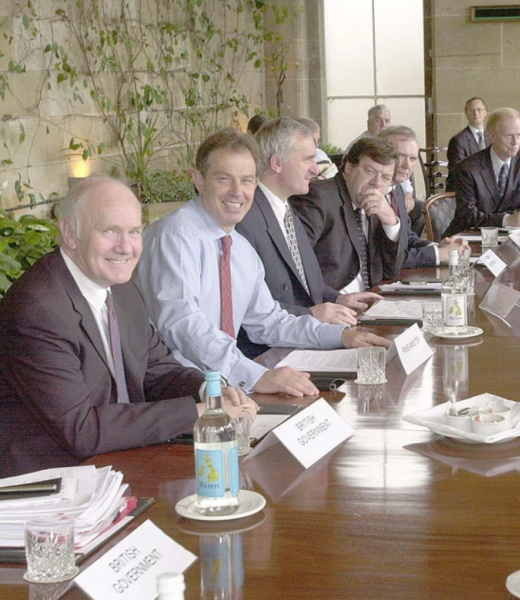
2002
Peter Cory, a retired judge of the Canadian Supreme Court, is appointed to conduct the investigations as per the Weston Park Agreement, and we prepare extensive briefings on the Northern Ireland cases (Pat Finucane, Rosemary Nelson, Robert Hamill and Billy Wright) to assist him with his work.
We organise a seminar: A Bill of Rights for Northern Ireland? (London).
We make our annual a submission to the United Nations Special Rapporteur on the Independence of Judges and Lawyers on the intimidation of defence lawyers in Northern Ireland.
We make a joint third-party intervention in an appeal by the Northern Ireland Human Rights Commission to the House of Lords on the right to intervene in litigation. The court agreed that it was within such Commission’s general powers to promote the general understanding of human rights law and ruled that the it was within the Commission’s capacity to make submissions on the adequacy and effectiveness of human rights in Northern Ireland if so permitted or invited by courts or tribunals.
We produce reports for the Police Ombudsman on the 1977 murder of RUC Sergeant Joe Campbell (where senior management at the RUC failed to act on intelligence relating to a potential threat to his life) and to Judge Barron’s inquiry into the murder of Seamus Ludlow, a civilian found murdered in Dunkalk, Ireland. His murder was never solved, with the family alleging that the Gardai failed to follow up on an important line of inquiry – that Mr Ludlow was the victim of either loyalists or the British forces who mistook him for a senior member of the IRA.
We produce a report into the murder of Patsy Kelly, a nationalist councillor murdered by Ulster Unionists as he drove home in 1974.
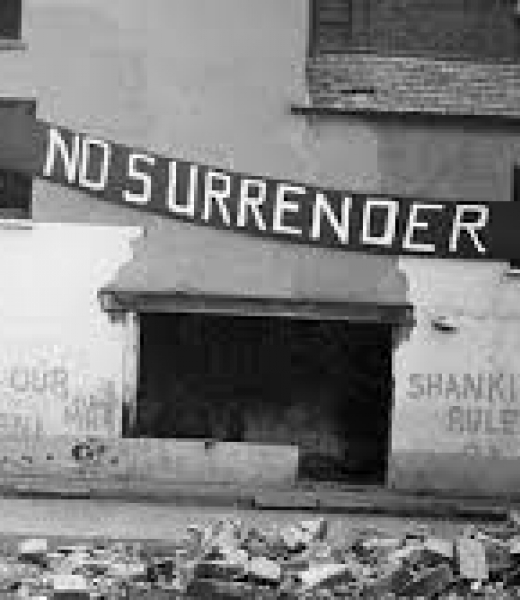
2003
John (now Lord) Stevens publishes a summary of his third report into collusion in Northern Ireland. He finds that he uncovered UK government collusion at a level ‘way beyond’ his 1990 view. Specifically he referred to the deaths of Patrick Fincuance as well as Adam Lambert—a 19-year-old Protestant student who was mistakenly targeted and shot by loyalist paramilitaries. Stevens also claims that a fire in his office during his first investigation had been deliberate arson.
Judge Cory delivers his report to the British and Irish governments. He recommends public inquiries in five cases of collusion, including Patrick Finucane and Rosemary Nelson. The British Government eventually establishes inquiries into all cases other than Patrick Finucane which it continues to refuse to do.
The European Court of Human Rights reviews the piecemeal investigations held into the death of Patrick Finucane and holds that none of them were capable of discharging the state’s investigative obligations under Article 2 of the European Convention on Human Rights. (Geraldine Finucane v United Kingdom, App no 29178/95 [2003] ECHR).
We organise a seminar: The right to an effective investigation into death (Belfast).
We make a submission to the UN Special Rapporteur on Promotion & Protection of the Right to Freedom of Expression & Opinion concerning the arrests of journalists Liam Clarke and Kathryn Johnston after they published MI5 and police covert transcripts of conversations between British and Irish politicians. In 2003, police officers raided the Clarke family home over an alleged breach of the official secrets act.
We provide an Interim Report on the Report of the Independent Commission of Inquiry into the Dublin and Monaghan Bombings in 1974. The bombings were deadliest attack in the history of the conflict in Northern Ireland, with a series of coordinated explosions between the two cities during rush hour that killed 33 civilians, a full-term unborn child, and injuring over 300 others. The Ulster Volunteer Force, a loyalist paramilitary group, claimed responsibility for the bombings in 1993.
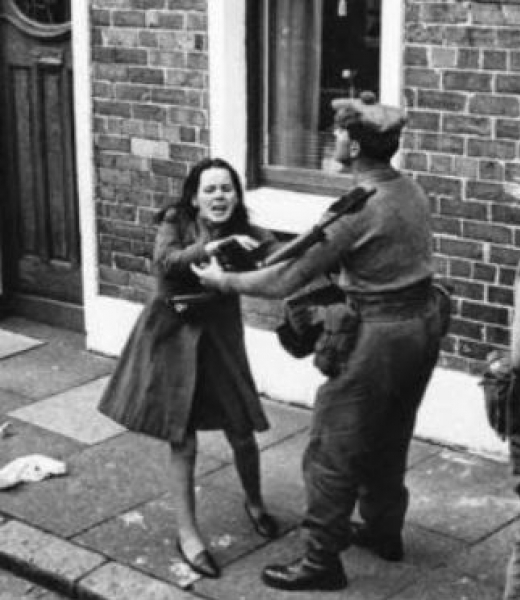
2004
The UK Government grants a public inquiry into the murders of solicitor Rosemary Nelson, and civilians Billy Wright and Robert Hamill, but says that an inquiry into Patrick Finucane’s case would require new legislation.
We make submissions to the United Nations Special Rapporteur on Judges and Lawyers on the Cory Report and the cases of Finucane, Hamill, Wright, and Nelson.
We intervene in the case of McKerr in the House of Lords (In re McKerr (AP) (Respondent) (Northern Ireland) [2004] UKHL 12). Gervaise McKerr was shot and killed by police officers on 11 November 1982. His family evidenced unnecessary and disproportionate use of force by the officers and a shoot-to-kill policy on the part of the government. They also alleged that there had been no effective investigation into or redress for McKerr’s death, and that this ineffective investigation is evidence of the State's official tolerance of the use of unlawful lethal force. This case was pivotal to establishing the right to a prompt and effective investigation into deaths caused by state actors.
We work with the family of Jean McConville, a widow with 10 children, who was kidnapped and murdered by the IRA. We support the family’s search for justice and act as a buffer between the family and police.
Partly in response to the Finucane case, a new Bill is introduced into Parliament for public inquiries. The Inquiries Bill grants, among other things, the Government the power to order a witness not be called, evidence be withheld from the inquiry or to the inquiry halted entirely. Despite our intense lobbying, it is passed into law the following year.
We send a confidential report to the Special Rapporteur on Freedom of Expression concerning attempts by the Government to suppress allegations that those who murdered Stephen Restorick, a soldier, were under surveillance.
We make submissions to the United Nations Committee Against Torture on the UK’s implementation of the Convention Against Torture.
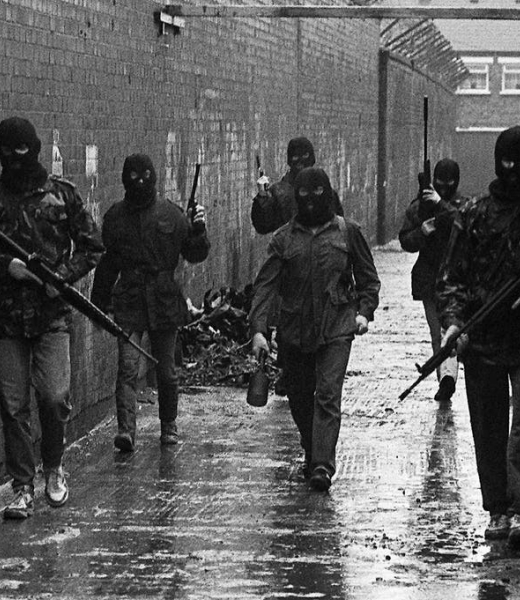
2005
Jean Charles de Menezes is killed by UK police
We make a joint intervention to the House of Lords in the case of A & Ors v Secretary of State for the Home Department, [2005] UKHL 71 concerning individuals detained preventatively as suspected terrorists by UK authorities pursuant to legislation passed by Parliament and a derogation from Article 5 European Convention on Human Rights made by the UK after the 9/11 attacks under Article 15 ECHR. The House of Lords went on to find the derogation incompatible with the ECHR, on the grounds that it discriminated between nationals and non-nationals, as it allowed the preventative detention only of the latter.
Jean Charles de Menezes is shot and killed by the police after he was mistakenly believed to be a fugitive in the previous day’s failed bombing attempts. We send the reports we produced on the shooting of Diarmuid O’Neill (an unarmed man shot and killed by an armed police unit in 1996 on suspicion of IRA involvement) to the Independent Police Complaints Commission and to lawyers acting for Jean Charles de Menezes.
We publish a report into PSNI Policing with Children and Young People.
We produce a report into the murder of John Dignam who was murdered by the IRA in 1992 and branded as a Special Branch informer after he made a forced confession of involvement in the murder a year previously of a civil servant, Margaret Perry.
We send a confidential report concerning the murder of Raymond McCord, a victims’ rights campaigner killed by loyalist paramilitaries in 1997, to the UN Special Rapporteur on Extra-Juridical Executions, the USA, the Secretary of State for Northern Ireland and various other authorities.
We make submissions to the Special Rapporteur on Judges and Lawyers, the Special Rapporteur on Extra-Judicial Executions, and the Special Rapporteur on Human Rights Defenders concerning the UK’s failure to hold an independent inquiry into the murder of Patrick Finucane.
We make a submission to the UN on the failure of the police investigation into the murder of journalist Martin O’Hagan and the attacks on the newspaper The Sunday World. O’Hagan was an investigative journalist murdered by loyalists.
We publish Plastic Bullets, A Human Rights Perspective. This report outlines the implications of the continued use of plastic bullets by the police and security services. This work and our advocacy is critical in ending the use of plastic bullets by the police in Northern Ireland.
We make submissions to the UN Committee Against Torture’s Concluding Observations on the 4th Periodic Report.
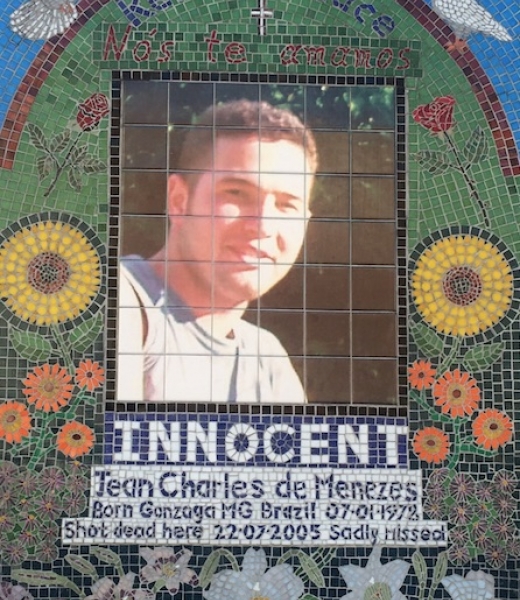
2006
We make a joint third party intervention to the UK House of Lords in the case of Al-Skeini v Secretary of Secretary of State for Defence [2007] UKHL 26, concerning the killing of Iraqi civilians by British soldiers in Iraq in 2003 during British security operations. The Court held that the deceased fell within the jurisdiction of the UK and therefore benefited from the human rights protections of the European Convention of Human Rights, and that the UK had breached its obligation under Article 2 – the right to life - to carry out an adequate and effective investigation into the deaths with respect to the first five applicants. This is a seminal case in developing the jurisdictional reach of the European Convention Human Rights and the obligation to carry out an investigation into killing that occur overseas at the hands of state authorities.
We publish a report on the Council of Europe Convention on the Prevention of Terrorism.
We publish a discussion paper, Devolving Policing & Justice in Northern Ireland.
We publish a response to the 19th Report from the UK Joint Committee on Human Rights into the UN Convention Against Torture.
We publish Failed by the System: Christy Walsh, a miscarriage of justice. Walsh had been falsely accused of possession of a nail bomb—for which he served a 14-year prison sentence despite having no associations with paramilitaries and no previous convictions.
We make a submission to the UN Human Rights Council’s Universal Periodic Review Mechanism Concerning the UK.
We send an update to the Special Rapporteur on Freedom of Expression concerning the murder of journalist Martin O’Hagan in 2001.
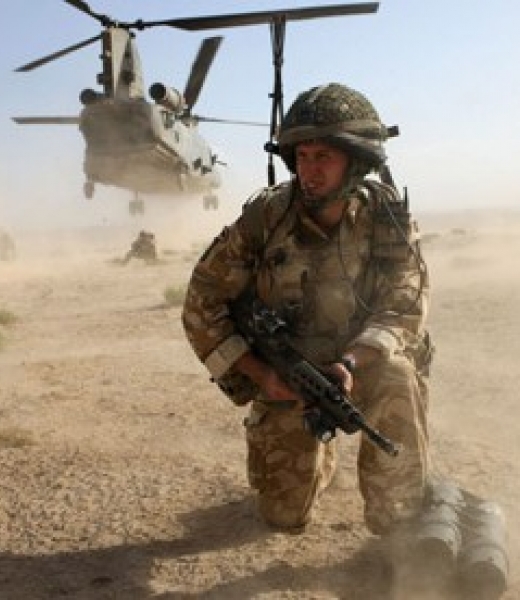
2007
Director Jane Winter is awarded the Beacon Prize for Northern Ireland.
Whilst continuing our work on Northern Ireland, we expand our focus beyond Northern Ireland to looking at the actions taken by the UK Government in the name of countering terrorism in the UK and abroad. We use our knowledge and experience of Northern Ireland to inform this work.
Together with Committee on the Administration of Justice and Amnesty International, we launch a successful review into the failings of the Billy Wright Inquiry, one of those inquiries carried out on the recommendation of Judge Cory.
We make a joint intervention in a case of UK (Al Rawi & Others v Secretary of State for Foreign and Commonwealth Affairs & Secretary of State for Home Department [2006] EWCA Civ 1279, [2007] 2 WLR 1219, [2008] QB 289) concerning detention of three British residents (although not nationals) who were imprisoned in Guantanamo Bay. The Secretary of State declined to request the release and return of the first three claimants. The appeal to the House of Lords was withdrawn after the Government agreed to intervene and allow return.
We make submissions to the Baha Mousa Inquiry, raising concerns about the culture of violent dehumanisation and accusations of sanctioned torture within the UK military serving in Iraq, as well as presenting evidence regarding senior military officials misinforming the House of Commons during a subsequent investigation.
We send a confidential report to the United Nations Special Rapporteur on Freedom of Expression and the Northern Ireland Police Ombudsman concerning the murder of journalist Martin O’Hagan in 2001.
We make a submission to the United Nations Special Rapporteur on Freedom of Religion regarding discrimination in employment and promotion prospects and the composition of the PSNI.
We make a submission to the UN Human Rights Committee concerning the UK’s compliance with the International Covenant on Civil and Political Rights.
We make a submission to the UN Special Rapporteur on the Promotion and Protection of the Right to Freedom of Opinion and Expression regarding death threats made against Robin Livingston, Editor of the Andersontown News, Richard McAuley, Sinn Feín media spokesperson, and four other persons by the Red Hand Defenders, an Ulster loyalist paramilitary group in Northern Ireland.
We make a submission to the UN Human Rights Council’s Universal Periodic Review Mechanism concerning UK Government’s counter terrorism policies, laws and practice.
We make a submission to the UN Special Representative on the Situation of Human Rights Defenders in the United Kingdom.
We host seminars in Belfast: Accountability in Transition and Putting the Past in Perspective.
The term of office of Police Ombudsman Nuala O’Loan comes to an end. Despite calls to extend her appointment, she is replaced by Canadian Al Hutchinson.
2008
Director Jane Winter is awarded the Irish World’s Damien Gaffney Award.
Our Director gives evidence at the Rosemary Nelson Inquiry. She testifies about the advice she made to various authorities about the constant death threats the human rights lawyer had received before her murder.
We submit a third-party intervention in In re McE (Appellant) (Northern Ireland) & Ors [2009] UKHL15 concerning police bugging of confidential consultations between lawyers and their clients in police custody. In 2009, the court would rule with the claimants, citing the right to confidential legal advice while in detention as a fundamental human right.
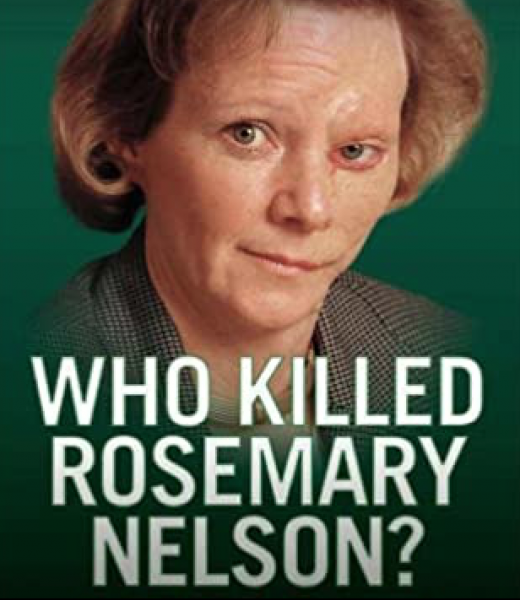
2009
We win the new Parliamentary Assembly of the Council of Europe’s Human Rights Prize for outstanding civil society action in the defence of human rights in Europe.
A public inquiry into the death of Baha Mousa commences. We send observers and publish weekly reports on proceedings on our website.
Responding to a Northern Ireland Prison Service consultation, we argue there needs to be designated prisons for women who are housed alongside young male offenders.
We make a submission to Her Majesty’s Inspector of Prisons and the Criminal Justice Inspectorate arguing that prison service as a whole is in need of major reform.
We make a third-party intervention in Al-Saadoon and Mufdhi v the UK, Application No. 61498/08 [2009] in the European Court of Human Rights which concern whether the UK transfer of the applicants to Iraqi authorities for trial violated the applicants’ ECHR rights primarily because there was a serious risk of the death penalty. The Court would eventually rule that Article 2 – the right to life - of the ECHR provides for a non-refoulement obligation and therefore the transfer was unlawful.
We co-sponsor two events in Belfast to encourage dialogue between loyalists and republicans.
We participate in a Home Office consultation on the retention of DNA by police authorities.
We make representations to the Irish Ambassador to Lithuania regarding the remand of Real IRA suspect Michael Campbell. Michael Campbell would later be sentenced to 12 years in prison for conviction to smuggle arms, despite insisting that he had been framed by British intelligence. He was later acquitted as it was proven that he was subject to entrapment by MI5 officers.
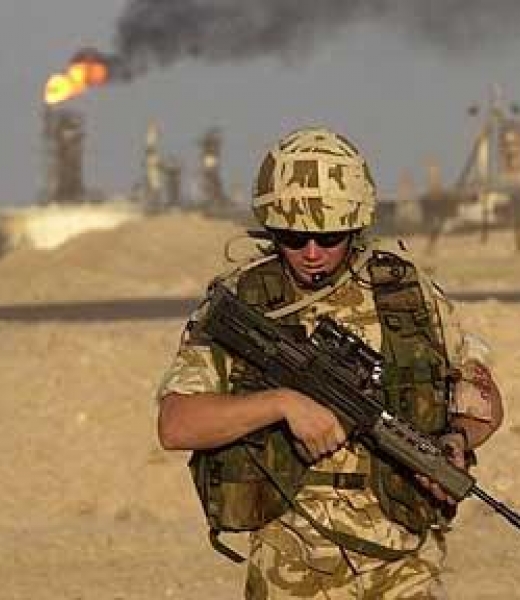
2010
British Irish Rights Watch marks its 20th anniversary.
The second Bloody Sunday Inquiry is finally published (also known as the Saville Report), exonerating the victims, with then Prime Minister David Cameron calling the killings “unjustified and unjustifiable” in Parliament. We played a significant role in achieving this outcome.
The Billy Wright Inquiry report is published (this is one of the Inquiries Judge Cory recommended should be undertaken). It adopts a narrower definition of collusion than the one used by Judge Cory, Lord Stevens or the Police Ombudsman and therefore finds no evidence of collusion.
We provide another submission to the Baha Mousa Inquiry;
We publish Dealing with the Past: Some lessons for Northern Ireland from South Africa, a research study comparing transitional justice mechanisms from Northern Ireland and South Africa.
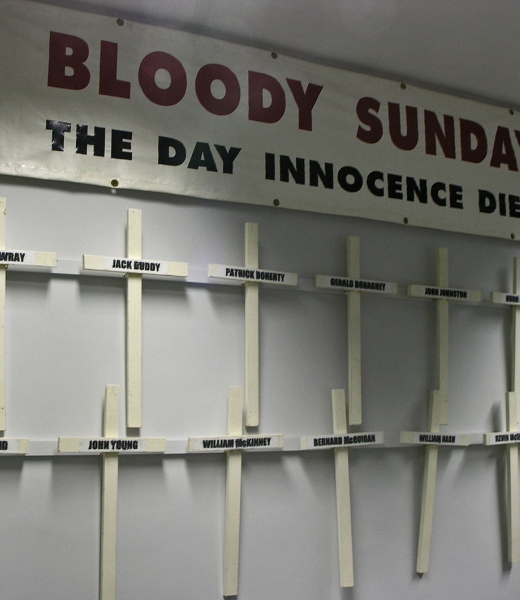
2011
We produce a major report on the Ballymurphy Massacre in 1971, where a British Parachute Regiment killed 11 civilians as part of Operation Demetrius – the British army’s codename for internment. We also publish two individual reports on the murders of 19-year-old Frank Quinn and 20-year-old John Laverty, who were both killed by British soldiers during the Ballymurphy Massacre. The investigation uncovers corruption in the Police Ombudsman’s Office. Together with the Pat Finucane Centre, we expose the scandal, and the Ombudsman is forced to step down.
The UK Government finally apologies for the shooting of Majella O’Hare, a 12-year-old girl shot twice in the back in 1976 by a British soldier. We supported the family for ten years in their bid to obtain an admission of wrongdoing from the army.
Finucane’s family is led to believe that they would be granted a public inquiry by the UK Government. However, when the family meets Prime Minister David Cameron, at a meeting also attended by our Director, he tells them that Sir Desmond de Silva QC will carry out another paper-based review behind closed doors. Geraldine Finucane, Pat Finucane’s wife, walks out in disgust.
2012
Jane Winter, founder and Director, retires after almost a quarter of a century’s dedicated work, and is replaced by Susan Bryant.
We meet the Parliamentary Undersecretary of State, Alistair Burt, as part of an NGO coalition to explain why the Gibson Inquiry into the UK’s involvement in rendition and torture abroad was unacceptable in its current form. The Inquiry eventually found that the UK’s intelligence agencies had indeed been involved in rendition operations, and that some of their officers had “supported” the mistreatment of suspects: through assaults, sleep deprivation, hooding and the use of stress positions. The report listed 27 questions that Gibson had been unable to answer before his inquiry was ended.
We release a major report into the death of Baha Mousa. The report goes further than the already damning public inquiry in stating that Mousa’s treatment whilst in army custody amounted to murder.
In light of the revelation that the UK Government had tapped our emails, Jane Winter gives evidence at the Leveson Inquiry and is awarded compensation—which she then donates to the organisation.
Sir Desmond de Silva publishes his report into Patrick Finucane’s death. Overall, de Silva was left in significant doubt as to whether Patrick Finucane would have been murdered by the UDA had it not been for the different strands of involvement by elements of the State. Furthermore there was a series of positive actions by employees of the State that actively furthered and facilitated his murder and that, in the aftermath there was a relentless attempt to defeat the ends of justice. Geraldine Finucane commences judicial review proceedings given the significant shortcomings of the process by which the de Silva review was carried out .
We comment on the draft Northern Ireland Consultation: Justice & Security Green Paper.
We comment on the draft Northern Ireland Code of Practice for Stop & Search Powers under the Terrorism Act 2000: Public Consultation.
Jane Winter chairs an independent inquiry into the murder of 18-year-old Gerard Lawlor in 2002. He was one of four linked loyalist killings on the same night. During the inquiry, new evidence came to light which enabled the panel to conclude that UK government colluded in the murder of Belfast solicitor Patrick Finucane.
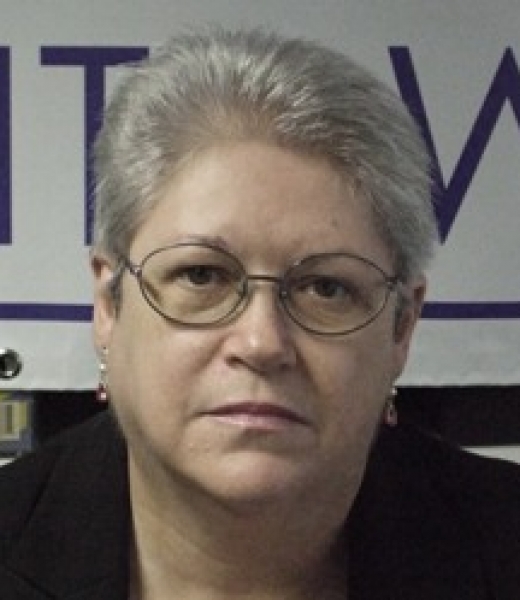
2013
Rights Watch UK
British Irish Rights Watch becomes Rights Watch (UK), consolidating the decision to expand its remit and use the lessons learned from Northern Ireland to protect, promote and monitor human rights in the context of counter terrorism measures taken by the UK Government domestically or abroad.
We publish a report into the 1998 Omagh bombings, which involved an IRA bomb that killed 29 individuals, including 2 unborn children, and wounded 220 others. We call for a cross-border enquiry into what was known before the bombings, and whether it could have been prevented.
We make a submission relevant to the review of non-jury trial arrangements in Northern Ireland.
We make a series of submissions addressing legal and policy proposals that affect access to justice and accountability:
We make a submission to Ministry of Justice Consultation: Judicial Review: Proposals for Reform.
We submit a response to the Consultation on Transforming Legal Aid: Delivering a More Credible & Efficient System.
We submit a response to the Call for Written Evidence: House of Lords Select Committee on the Inquiries Act 2005.
We make submissions to the Ministry of Justice Consultation- Judicial Review: Proposals for Further Reform.
We make a submission to the Bingham Centre Review into Streamlining Judicial Review in a Manner Consistent with the Rule of Law.
We make a submission to the Department of Justice Consultation Civil Legal Aid Remuneration.
We make a submission to the Northern Ireland Policing Board – HET Working Group. The Historical Enquiries Team (HET) was a unit of the Police Service of Northern Ireland set up in September 2005 to investigate the 3,269 unsolved murders committed during the conflict in Northern Ireland, specifically between 1968 and 1998. The team aimed to work with the families of those who were killed, and carry out work in such a way that the wider community had confidence in the outcomes.
We submit a response to the Call for Submissions: the Panel of Parties; and the Past.
We submit a Mid-Term report on the UN UPR of the UK.

2014
Yasmine Ahmed becomes executive director of Rights Watch UK
Susan Bryant steps down and is replaced by Yasmine Ahmed as Director and with this the organization undergoes a strategic review and agrees a new three year strategy consolidating its work to promote and protect human rights national security.
In a joint statement we reject calls by former Northern Ireland, Secretary Peter Hain for de facto amnesty for historic crimes in Northern Ireland. We call such an amnesty a “complete denial of access to justice” and warning it would “fundamentally undermine the peace process.”
We are one of the few NGO observers to monitor the Al-Sweady Inquiry. The Inquiry investigates accusations of mistreatment of prisoners by the British Army following the Battle of Danny Boy in Southern Iraq in 2004. We make submissions to the Al-Sweady Inquiry.
We mark the 25th anniversary of Patrick Finucane’s death, stating that “nothing less than a full public inquiry will discharge the state’s obligation to investigate the murder and the extent of state collusion.”
We make submissions to the Intelligence & Security Committee Privacy & Security Inquiry, which examined the duties and actions of intelligence services with respect to the death of British fusilier Lee Rigby.
We make submissions to the Schedule 7 Code of Practice Consultation, calling for greater clarity with respect to the powers afforded to state actors as set out under schedule 7 of the Anti-social Behaviour Crime and Policing Act 2014. These powers include the ability to strip-search, take blood samples, as well as the reasons given for detention.
We make submissions to the Committee of Ministers on McCaughey & Hemsworth relating to the supervision of these cases that concern the actions of security forces in Northern Ireland.
We make Submissions to UN Human Rights Committee concerning the list of Issues for the UK.
We file submissions to House of Lords Committee on the EU Consultation on the Use of Drones, arguing for greater regulation.

2015
In a submission to the HM Inspectorate of Constabulary, we state that there has been a “widespread loss of confidence” in the Historical Inquires Team (HET), and call for a new body to replace it. The HET was set up to investigate unsolved murders committed during the conflict in Northern Ireland. In its place, we propose an Independent Commissioner for Truth, with its own independent staff and budget, along similar lines to the Police Ombudsman.
The UK Supreme Court grants us permission, alongside the Pat Finucane Centre to intervene in the case of Keyu and Ors v Secretary of State for Foreign and Commonwealth Affairs [2015] UKSC 69. The case concerns the UK Government’s refusal to hold a public inquiry into the 1948 Batang Kali massacre – where British troops killed 24 unarmed villagers in the then-British Colony of Malay and we address the issue of how far back the UK Government was required to investigate allegations of unlawful killings. The Supreme Court finds that the obligation to investigate deaths under the ECHR did not stretch back to 1948, but instead stated the “critical date” for the purposes of when the Convention rights were enlivened was 1966. This puts the UK under an obligation to carry out effective, transparent and independent investigations into deaths during the conflict in Northern Ireland, as these occurred after 1966.
Director Yasmine Ahmed, along with a network of women with gender expertise in academia and civil society, publishes Gender principles for dealing with the legacy of the past (‘The Principles’). Formed in consultation with Northern Irish women affected by the conflict, The Principles set out to ensure the voices and experiences of women are included in the transitional justice process.
Following the release of the Home Office’s “Counter-Extremism Strategy,” we raise concerns that it would have a “counter-productive effect in Muslim communities and the creation of a legal regime which offends the rights to expression, thought and religion.”
We threaten to launch legal proceedings against the Government for refusing to publish the legal advice it claims provides lawful justification for the use of drone strikes in Syria, which killed 3 individuals—including 2 UK citizens. We submit requests for access to the legal advice to the Attorney General’s Office and the Cabinet Office. The Government refuses our requests and the Information Commissioners Office upholds the decision. We later appeal this decision to the Information Tribunal and at the same time the Joint Committee for Human Rights states the Government is ducking the question of legality of the strikes.
We challenge the Government’s decision to remove from the Ministerial Code the “duty on Ministers to comply with the law including international law and treaty obligations and to uphold the administration of justice.”
We make a submission on Prioritisation of Inquests in Northern Ireland. We highlight that the government’s ability to prioritise certain inquiries into deaths involving state actors should be based on clear strategic objectives, which are transparent to the public and do not prejudice the equal access to justice.
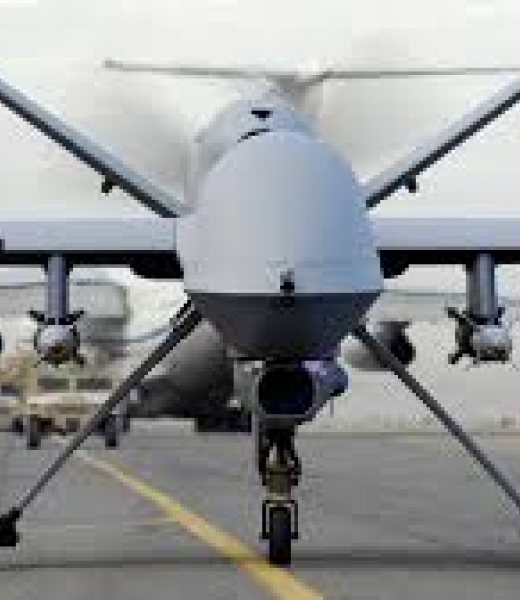
2016
We release a landmark report, Preventing Education: Human Rights and UK Counter Terrorism Policy in Schools. The report condemns the Government counter-terrorism strategy as counter-productive, finds that it violates the UK Government’s human rights obligations and calls for a Review of the Strategy. We launch the report at an event in the UK Parliament and it attracts widespread media coverage and ignites significant Parliamentary debate.
The same month as the report is released we hold a closed roundtable at Chatham House that brings together a diverse range of leading experts, civil society representatives and Government officials to assess the extent to which the UK Government’s counter-terrorism strategy is human rights compliant and effective.
A month after our landmark report is released, the Home Affairs Select Committee calls for an independent review of PREVENT.
We make submissions to the Human Rights Council for the UK’s Universal Periodic Review (UPR) in the 3rd Cycle (27th) Session.
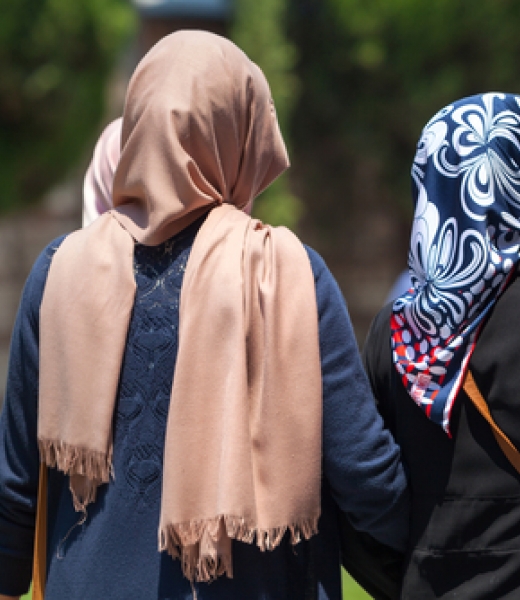
2017
We make a joint application to intervene in R (Campaign Against the Arms Trade) v Secretary of State for Business, Innovation and Skills [2019] EWCA Civ 1020 challenging the UK Government’s licensing of arms to Saudi Arabia that are used in the conflict in Yemen. We raise the issue of UK Governments complicity in the abuses committed by the Saudi Government in Yemen. We are deeply disappointed when the High Court gives the UK Government a green light to continue to sell arms to Saudi Arabia for the war in Yemen.
In conjunction with Liberty, we advocate for an amendment to the Higher Education and Research Bill, which would remove the statutory PREVENT duty for universities. Although it is not successful it generates significant parliamentary debate and galvanises Parliamentary support for a review.
We work closely with the UN Special Rapporteur on the rights to freedom of peaceful assembly and association, Maina Kiai, who releases a report on his second official visit to the UK and adopts the recommendations from our landmark report including calling for an independent review of Prevent (our report on Prevent is the only NGO report cited in his report).
We publicly express our disappointment that, despite acknowledgements of state collusion, the Court of Appeal in Belfast upholds the UK Government’s decision not to have a public inquiry into the murder of Patrick Finucane (Finucane (Geraldine) v The Secretary of State for Northern Ireland [2017] NICA 7). It has been 28 years since he was murdered.
In response to the publication of ‘UK Lethal Drone Strikes in Syria’ by the UK Intelligence and Security Committee, we echo the Committees “profound” disappointment with the Government’s lack of transparency concerning the lethal drone strikes in Syria. The ISC discloses that the Government withheld key documents from the Committee.
We urge the Government to reject the Defence Committee’s recommendations to impose a statute of limitations atrocities committed during the conflict in Northern Ireland. Such a statute would grant impunity to British soldiers who committed abuses during the three decades of violence in Northern Ireland, and place the United Kingdom in direct breach of its domestic and international obligations.
We present written evidence to the All-Party Parliamentary Group on the Drones Inquiry: “The Use of Armed Drones: Working with Partners” which sets out the legal concerns with the Governments approach to the use of lethal force in the context of automated drones. Our evidence is cited by MPs in a number of Parliamentary debates and prompts a number of Parliamentary questions to the Prime Minister.
We take the Government to court in the Upper Tribunal over its refusal to disclose the legal basis for targeted drone killings of UK and other nationals in Syria following an FOI request sent by RW(UK) (Corderoy and Ahmed v Information Commissioner [2017] UKUT 495 (AAC); [2018] AACR 19). We latter secure a significant win in this case, with the Upper Tribunal deciding that the ‘security bodies’ exemption under the Freedom of Information Act (FOIA) should not have been applied in a blanket fashion to exempt the legal advice that formed the basis of the lethal drone strike that killed two British citizens, Reyaad Khan and Ruhul Amin, in August 2015. This case set a significant precedent and marks a significant victory in terms of requiring the Government to disclose information in national security related cases.
As a result of the abovementioned victory, we are one of three organisations short-listed for the Columbia University Global Freedom of Expression Awards
We make a joint statement on a US-led drone export initiative in light of the harm caused by and risks associated with drone technology and make a set of recommendations for the process.
We make a joint statement expressing concern about the UK Government’s lack of support for Universal Periodic Review recommendations that aim to ensure the UK complies with its human rights obligations.
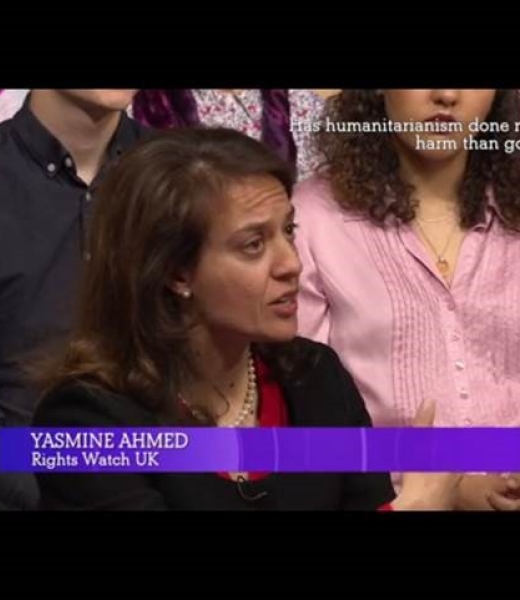
2018
Together with the Chatham House we hold a closed roundtable on the “Human Rights and Ethical Implications of Approaches to Countering Violent Extremism in Europe.” This event brings together stakeholders from civil society, academia, and international governmental organisations from six countries across Europe.
We make a joint statement publicly urging European states to refrain from assisting in US drone strikes that may violate international law.
We make a joint statement the report by the UK Intelligence and Security Committee into detainee mistreatment and rendition. The Committee’s report revealed shocking new details of UK complicity in the United State’s torture and rendition program, with the reports suggesting that such revelations only exposed the tip of the iceberg.
We expose and create significant and sustained Parliamentary debate and media coverage on the British Government’s intention to relax the standards on the use of children as Covert Human Intelligence Sources. Correspondence with the Home Office suggests children are not only used to furnish the police with information, but are also assigned to collect information on behalf of agencies.
We lead a joint call for the House of Lords to support an independent review of the UK Government’s PREVENT Strategy.
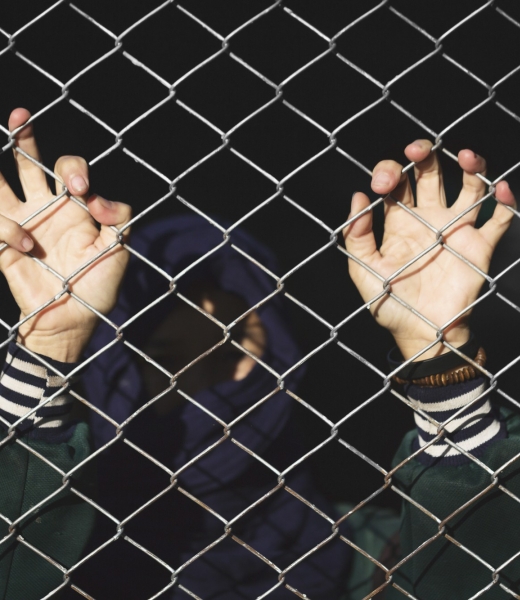
2019
We express concern about the deprivation of a young British woman’s citizenship who travelled to Syria to join ISIS when she was just 15 years old.
We make a joint intervention to the Divisional Court in the appeal against the decision to continue to allow the UK Government to license arms exports to Saudi Arabia that are used in the conflict in Yemen. (R (Campaign Against the Arms Trade) v Secretary of State for Business, Innovation and Skills [2019] EWCA Civ 1020). We raise concerns regarding the “clear risk” that weapons might be used to commit serious violations of international humanitarian law. We achieve a significant victory when the Court of Appeal rules that the Government acted unlawfully in licensing arms exports to Saudi Arabia.
We make a submission to the Committee on the Elimination of Discrimination Against Women concerning the gendered impact of counter-terrorism policy in the United Kingdom. We continue to actively mainstream gender through all our programmes of work.
As a result of our prolonged advocacy at the domestic and international level, the UK Government is forced to establish an independent Review of the Prevent Strategy Prevent strategy to an independent review. We publish our proposed Terms of Reference for the upcoming independent review of Prevent.
The Government appoints Lord Carlile as Independent Reviewer of Prevent and we issue a legal challenge given his involvement with and support for the strategy. Later in the year, the Government concedes to our challenge and removes Lord Carlile from the position of Independent Reviewer. The Government also concedes to our demand that the Reviewer be appointed by an independent and transparent process.
After 30 years, and numerous court cases and years of advocacy, the UK Supreme Court in 'In the matter of an application by Geraldine Finucane for Judicial Review (Northern Ireland) [2019] UKSC 7' holds that there has still not been an adequate investigation into the murder of Belfast solicit Patrick Finucane. The Court cites our Report Deadly Intelligence
We host an joint urgent briefing for UK Parliamentarians on the situation of British women and children detained in ISIL associated camps in North East Syria. This, and our written briefing, informs extensive Parliamentary debate in both Houses. We also participated in an event at the European Parliament the children detained in these camps.
We form part of a core group of civil society organisations that come together to address the growth of the UN Counter-Terrorism (CT) architecture, the expanding network of informal bodies that support and inform the work of the UN CT architecture and the marginalisation of human rights and civil society from this policy space. We call for sustained civil society engagement and a thorough integration of human rights in this space.
We write a joint letter to the President of the UN General Assembly urging him to reconsider the appointment of Egypt as co-facilitator for consultations with Member States on the review of the UN Global Counter Terrorism Strategy (GCTS) in 2020.
We continue to challenge the impunity of the UK Government for abuses committed in the context of deployments to Iraq and Syria. We issue a joint letter that calls on all political parties to deliver a prompt and effective investigation into war crimes allegations revealed by BBC Panorama and The Sunday Times.

2020
Rights and Security International
We undertake our third and final transformation from an NGO working predominantly in the United Kingdom and Europe, to Rights and Security International - now mobilising our three decades of knowledge and expertise, in partnership with local civil society, to respond to abuses that are committed in the name of national security globally.
We express grave concern over the arbitrary arrests of Pakistani human rights leader, Manzoor Pashteen, and other members of the Pashtun Tahafuz movement (PTM), and call for their immediate and unconditional release.
We make a third-party intervention, oral and written, in the Grand Chamber of the European Court of Human Rights case of Hanan v. Germany, Application No. 4871/16 (Grand Chamber). This case concerns an investigation into an airstrike in Afghanistan that killed the applicants two sons, who were 8 and 12, in 2009. We intervened on the issues of the extraterritorial application of human rights and in particular the duty to investigate under Article 2, the right to life.
We submit a list of issues to the Human Rights Committee pertaining to the UK’s compliance with the International Covenant on Civil and Political Rights (“ICCPR”). These issues are: 1. Transitional justice in Northern Ireland; 2. The UK Government’s treatment of British IS-affiliates in Syria; 3. The UK Government’s conduct in relation to PREVENT; 4. The conduct of the UK’s wider security and national security projects overseas.
We publish “Covid-19 Toolkit for Civil Society Partners. Emergency Powers and Crisis Responses: Human Rights Risk” with 19 local civil society partners from around the world. This toolkit uses our expertise and experience in responding to emergency measures in the context of counter terrorism and provides support to civil society in their response to COVID-19 emergency measures, particularly those having a disproportionate impact on vulnerable and marginalised groups.
Following a year of extensive desk and field research, RSI publishes its landmark Repatriation report 'Europe's Guantanamo: The Indefinite Detention of European Women and Children in North East Syria'. The report calls for the immediate repatriation of European women and children from detention camps in North East Syria, arguing that their repatriation is legally necessary, logistically possible, and Europe’s only viable national security option.
In December 2020, Sarah St Vincent joins as the new Executive Director of Rights & Security International.
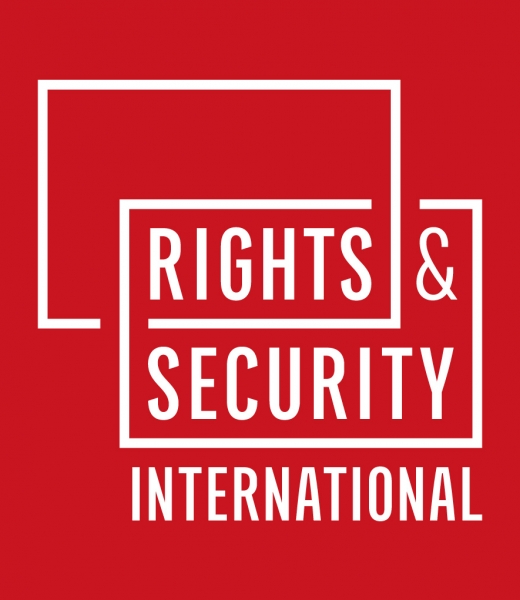
2021
We launch the Rise Coalition, a new global network of human rights organisations working together to identify human rights abuses committed in the name of ‘national security’ and carry out advocacy. We welcome eight member organisations from Indonesia, Kenya, Brazil, Colombia and the Netherlands – all dedicated to defending human rights and ensuring justice for violations – and hold several multilingual educational events, including a roundtable on digital rights in Latin America featuring a keynote by a Brazilian Supreme Court justice. We also award our first small grants to Rise Coalition members in Kenya and Indonesia for fresh research on how counter-extremism programmes impact human rights.
Following extensive research, we publish a landmark report, ‘Abandoned to Torture: Dehumanising rights violations against children and women in northeast Syria.’ Using human rights law, the report analyses the harrowing conditions British and other European children and women face in camps in northeast Syria, concluding that pain and suffering in the camps are so severe that they rise to the level of torture. We also litigate a freedom of information request about the number and genders of people in the camps whom the Home Secretary has deprived of their British citizenship, and intervene in a European Court of Human Rights Grand Chamber Case against France concerning whether governments must repatriate children and adults from the camps.
Following our 2020 report, ‘Europe’s Guantanamo,’ as well as widespread and persistent calls on the UK to repatriate British children and women (including those previously stripped of their British citizenship), the government finally repatriates three British children. We continue to urge the UK and all other governments that are safe destinations to repatriate their nationals and former nationals from the camps in northeast Syria.
We submit expert evidence to the Independent Human Rights Act Review, a panel that tracks the impact of the Human Rights Act (1998) in incorporating the European Convention on Human Rights (ECHR) into UK law, outlining the need for legal accountability for UK actions overseas. We assert that the UK government should uphold its human rights obligations, regardless of whether it is acting domestically or internationally. The UK Parliament’s Joint Committee on Human Rights (JCHR) supports our explanation of the dangers of limiting how the Human Rights Act (1998) protects people from rights-harming UK actions overseas.
We expand on our international research, publishing a report highlighting the national security and human rights situation in Indonesia. We outline issues of racial justice relating to the country’s West Papuan communities, and express concerns over the state’s policies regarding citizenship stripping.
Our Executive Director addresses the Counter-Terrorism Committee of the UN Security Council during an event related to the twentieth anniversary of the 9/11 attacks; RSI is one of only two civil society organisations invited to address the committee. We also facilitate first-of-their-kind dialogues between the UN’s Counter-Terrorism Executive Directorate and a range of civil society organisations from around the world.
We criticise the UK’s ‘Legacy’ plans in Northern Ireland, which aim to end all liability – civil or criminal – for crimes allegedly committed in the context of the Troubles prior to the 1998 Belfast/Good Friday Agreement. We publish a human rights analysis of the ‘Legacy Bill’, disprove the government’s assertions that ‘vexatious claims’ are being made against veterans of the conflict in Northern Ireland, and remind the UK government of victims’ and families’ rights to justice and transparency.
2022
We submit expert evidence to the All Party Parliamentarian Group (APPG) on Trafficked Britons in Syria for their report on British women and children trafficked into Syria. The APPG report ultimately provides extensive details regarding the evidence that British women and children have been trafficked to, and subsequently exploited and abandoned in, Syria. It also describes life-threatening conditions in the detention camps where several of the British citizens and former citizens are forced to live as a result of the UK’s failure to repatriate them. Furthermore, the report acknowledges that the UK’s harmful citizenship-stripping policies—and continued reluctance to repatriate its citizens--exposes these children and adults to severe human rights violations. The APPG report cites RSI’s reports several times.
To further the public’s knowledge about repatriation from Syria, we launch our Global Repatriations Tracker. In this ground-breaking public database, we collate publicly verifiable data on repatriations of third-country nationals from the camps in northeast Syria (including by repatriations by the UK) since 2019, broken down by gender. Journalists and other human rights groups begin citing the tracker, which we update regularly.
In September, 2022, the European Court of Human Rights (ECtHR) cites RSI’s work in a major ruling in the case of H.F. and Others v France, which calls on France to reconsider applications for repatriation of its nationals detained in the camps in northeast Syria.
We write a letter to UN human rights experts about our concerns regarding the UK’s citizenship deprivation policies, and how the government plans to expand these powers through the Nationality and Borders Bill 2022 (now Act 2022). These UN human rights experts then write to the UK government, echoing many of RSI’s objections.
In March 2022, in the midst of litigation with RSI, the Home Office finally releases statistics on the number of people stripped of their British citizenship between 2019 and 2020. We continue to pursue our litigation, which seeks to compel the Home Office to publish citizenship deprivation figures broken down by gender and parental status.
In mid-2022, we submit evidence to the Joint Committee on Human Rights (JCHR) detailing our concerns with the Northern Ireland Troubles (Legacy and Reconciliation) Bill, objecting to the sweeping amnesties the bill would create and concluding that the proposed Independent Commission for Reconciliation and Information Recovery (ICRIR) will not sufficiently carry out effective investigations that satisfy Articles 2 and 3 of the ECHR. The JCHR agrees with RSI’s assessment of the bill, stating that the proposals are not compatible with Articles 2 and 3 of the ECHR. Separately, we highlight concerns about provisions of the bill allowing the government to retain people’s biometric data indefinitely.
Regarding Northern Ireland, we also submit evidence to a House of Lords Sub-Committee consultation on the potential impact of the pending Northern Ireland Protocol Bill from a human rights perspective. In our submission, we raise concerns that the Protocol may undermine human rights protections outlined in the Belfast/Good Friday Agreement.
We respond to the UK Ministry of Justice’s Human Rights Act reform consultation. Our briefing highlights our concerns that the government’s proposals would curtail human rights protections and compromise the incorporation of the European Convention on Human Rights (ECHR) into domestic law, with particular harms to the peace agreement in Northern Ireland.
We also submit a briefing on the UK government’s National Security Bill, highlighting our concerns with the bill’s proposals to limit access to legal aid to people with past terrorism convictions, including – for example – when people in this category seek help following domestic violence or housing problems. Through our advocacy, we achieve changes to the bill’s language on this point.
We make a joint stakeholder submission with the Institute on Statelessness and Inclusion to the Office of the High Commissioner for Human Rights (OHCHR), ahead of the UK’s Universal Periodic Review (4th Cycle), on arbitrary deprivation of nationality on national security grounds. In our submission, we outline several recommendations for the UK government, which include refraining from deprivation practices that could render someone statelessness, and repealing the broad ‘conducive to public good’ basis for stripping someone of their British nationality.
We also submit a second stakeholder report on the retrogression of human rights protections in Northern Ireland, calling on other countries to discourage the UK from creating amnesties for human rights violations committed during the height of the conflict in Northern Ireland.
We publish a report, A UN Ombudsperson on Counter-Terrorism: Advancing Human Rights, in which we advocate for the creation of stronger oversight on human rights compliance within the UN’s counter-terrorism infrastructure.
We publish two new research reports on the UK government’s Prevent strategy for countering ‘extremism’. The first, Prevent-ing Dissent: How the UK’s Counterterrorism Strategy is Eroding Democracy, explores the harmful impact the Prevent programme has had on grassroots movements, artists, university students and civic space. The second, Secret, Confused and Illegal – How the UK Handles Personal Data Under Prevent, examines how the UK government obtains and manages personal data under Prevent, concluding that that the government is violating the right to privacy under the ECHR.
We also publish a country profile report on Kenya titled Addressing Human Rights Concerns from Kenya’s Counter-terrorism Laws and Policies. The report analyses the intersections between Kenya’s counter-terrorism policies and human rights issues. It also looks at the impact Kenya’s history has had on its current national security framework, and how those policies affect the civic space, including activist movements and those involved in them.
As part of our goal to continue internationalising and reaching partners abroad, our Rise Coalition hosts an e-safety training for Afghan women activists who are encountering forms of digital violence, such as online attacks, threats and harassment. The training provides a forum for activists and digital security specialists to share knowledge, best practices and helpful resources.
The Rise Coalition also holds a public educational webinar titled Indigenous Peoples and Land Rights: The Fight for Inclusive National Security Policies and Sustainable Peace. The webinar covered biases in existing national security policies and the discriminatory impact these can have on Indigenous peoples.
